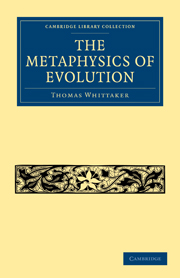Book contents
A CRITICAL ESSAY IN THE PHILOSOPHY OF HISTORY
Published online by Cambridge University Press: 07 September 2010
Summary
O genus infelix humanum, talia divis
Cum tribuit facta atque iras adiunxit acerbas!
Quantos turn gemitus ipsi sibi, quantaque nobis
Volnera, quas lacrimas peperere minoribu' nostris!
Lucretius, v. 1194–7.And of these twain, the black seed and the white,
All things come forth, endured of men and done;
And still the day is great with child of night,
And still the black night labours with the sun.
Swinburne, Genesis.PROGRESS OF CYCLE?
To ask whether European history is a progress or a cycle will seem to many the re-opening of a question long since settled. By those who hold that there is, at least in possibility, a philosophy of history, it is generally supposed that the aim of this philosophy is to discover a law of progress. In spite of the supposition, no law of progress that has yet been formulated is generally received. And there is, on the surface of history, an enormous obstacle to the view that the historical series of events is a continuously progressive series. Whatever formula we adopt, how are we to bring within it at once pre-Christian antiquity, the Middle Ages, and modern times? While to one type of mind the system that governed mediaeval life may seem a “Kingdom of Darkness,” to another no doubt it presents itself as a “Civitas Dei;” but from the second point of view, as much as from the first, it would appear natural to suppose a kind of circular movement in human affairs.
- Type
- Chapter
- Information
- The Metaphysics of Evolution , pp. 7 - 36Publisher: Cambridge University PressPrint publication year: 2009First published in: 1928



